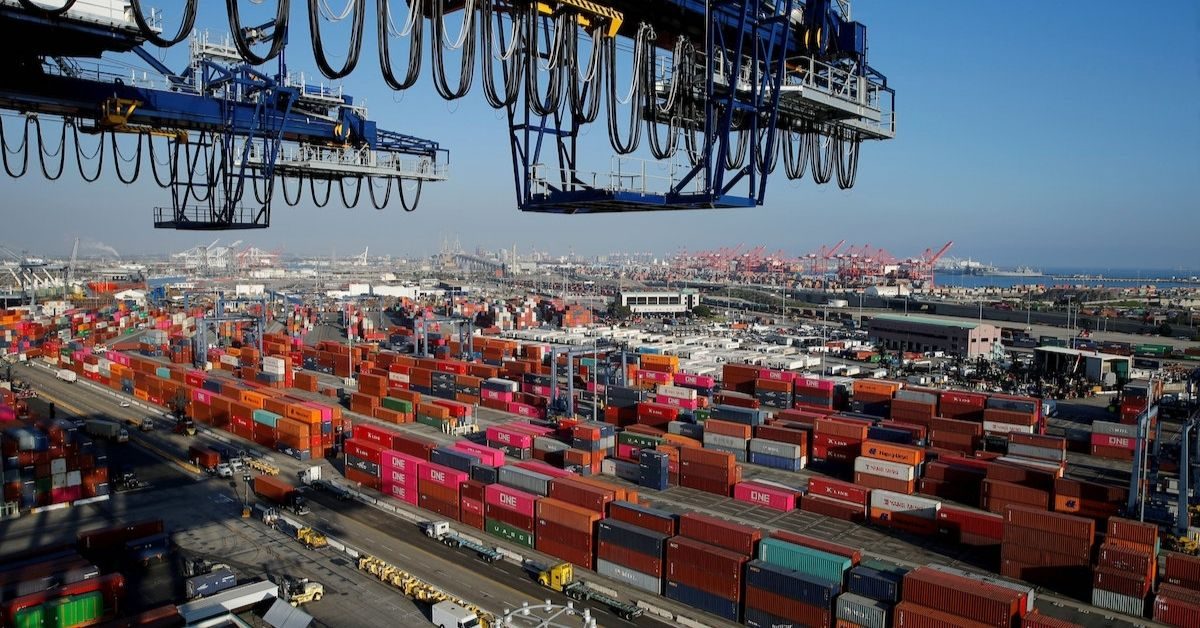Go premium or go home is the new motto in the Asian container markets, with shippers struggling to get hold of ships and carriers assuring availability only when customers pay a premium over the Freight All Kind, or FAK, market sources said.
These premiums come on top of the recent runup in container spot freight rates, where prices to North America from Asia have risen nearly three-fold over the last six months to a record high of $5,300/FEU on Feb. 8. Container rates to Europe from Asia are also at an all-time high of $8,500/FEU Feb. 8 compared with $1,700/FEU in September 2020.
The S&P Global Platts Container Index freight stood at $4,264.53/FEU as of Feb. 8, against $1,642.33 in September 2020.
“The shipping liners are collecting the premium rate for saving the equipment, you cannot get the space without it as it will be impossible to gate,” said Dave Li, branch manager, THI Logistics, Chongqing. “The probability of you going through is very low without the premium,” he added.
“If you pay the premium, you may get space within 10-15 days but if you don’t, you may have to wait really long and nobody can guarantee you a space,” said Neal Huang, general manager, South China sales, Bollore Logistics. “Some customers have been waiting for over five weeks.”
Another logistics manager looking to ship to New York from Hong Kong said the final cost including priority-loading premium is about $8,000/FEU, compared with the FAK rate of $5,000/FEU.
Premium rates, which are typically seen in long-term contracts, have shifted into the spot market of late due to challenging market conditions. The premium is meant to ensure a fast-track loading, however, that is not the case anymore.
“The premium rates became prevalent after the Golden Week period when there was limited supply because of the blank sailings … Initially there was a lot of resistance from the customers but gradually they realized that the more they waited, the lesser their chances of getting space and equipment. In order to move the cargo before Christmas, they decided to pay the premium. This happened in December,” said Peter Sundara, vice president, global freight management, LF Logistics.
The concept of premium payment has become a necessity to get space on the container to a level where one pays it as a ticket to get into the queue.
“If you aren’t in the queue, your chance of getting space and equipment is very slim,” Sundara said.
In Singapore, even the customers paying a premium may have to wait four-five weeks to get a confirmed space.
“If a customer gives me a booking, I tell them upfront, it’s subject to space. We will push for that booking the best we can, but the situation is very tight,” said Shyam Rajput, manager business development, Ceva Logistics, Singapore Pte Ltd.
A few carriers have started a practice where they return the money if they are not able to confirm space. “If there is no space, we will return the money back, in 10 or 15 days from the cancellation of bookings,” Rajput said.
Priority-loading premiums
While premium bookings seem to have become the norm, Nick Coverdale, founder of Agree Freight, takes it with a pinch of salt. Agree Freight is an online aggregator between carriers and forwarders that offers container rates directly linked to a ship’s sailing.
Even if a client gets it loaded, the cargo may still get stuck for days after reaching the heavily congested ports in the US and Europe, Coverdale said.
“Premium originates from Sea Air mode of transport and the most crucial point is the containers are top stowed, so when they arrive at the discharge port, they are unloaded within 45 minutes from when the vessel starts working. So, getting on board at Shanghai, great, sailing to Long Beach in 12 days, great, then sitting four or five days outside the discharge, not so great and thus a pointless ‘Premium Service,'” Coverdale added.
New challenges
The uncertainty around getting a container has given rise to duplicity of bookings.
“Some shippers approach different forwarders, all these forwarders will go to the carriers and carriers will get a lot of bookings. The carriers are also not able to gauge the actual volumes, 10%-15% of total bookings the carriers get may be the fake bookings,” according to Rajput.
As a result, the carriers have started imposing a cancelation fee. “If you cancel a booking after you have a confirmed space you need to pay a cancelation fee which could be around $1,000-$2,000, depending on the carrier,” Rajput said.
Source : Sp Global







